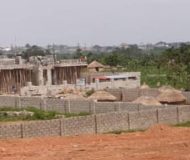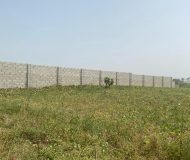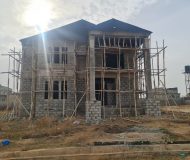
The Remote Work Revolution: Transforming Real Estate Markets
In recent years, the surge in remote work has brought about a profound shift in our work habits, communication methods, and lifestyle choices. This transformation has rippled across various sectors, with one notable area of influence being the real estate market. In this article, we’ll explore how the rise of remote work is redefining the landscape of the real estate market.
- The Decline of the Daily Commute
One of the most immediate and noticeable impacts of remote work on the real estate sector is the decreasing significance of location. The elimination of daily commutes means that employees are no longer constrained by the necessity of living close to their workplaces. This newfound flexibility has generated increased interest in suburban and rural areas, as well as smaller towns and cities situated further away from major urban hubs.
Consequently, the demand for homes in these regions has soared, leading to higher property values and intensifying competition among prospective buyers. Conversely, certain urban areas have experienced a reduced demand for housing, thereby influencing the pricing dynamics in these locations.
- The Emphasis on Home Office Spaces and Amenities
Remote work has prompted a growing emphasis on home office spaces and amenities. As remote workers spend more of their professional lives at home, they are actively seeking properties that can accommodate their work-related needs. Homes with dedicated office spaces, high-speed internet connectivity, and ergonomic features are in high demand.
To meet this demand, real estate developers and sellers have adjusted their strategies, highlighting these features in property listings. Furthermore, there has been an uptick in home renovations and conversions, with homeowners transforming spare bedrooms, basements, or even garages into functional home offices.
Read also: The Advantages of Renting a Property: Why It Makes Sense for Many
- Urban Adaptation
While many individuals have embraced remote work and the lifestyle changes it entails, some still desire the urban living experience with its accompanying amenities and vibrancy. In response, certain urban areas have pivoted toward urban revitalization initiatives, creating more pedestrian-friendly environments and promoting cultural and recreational activities.
These endeavors have helped sustain property values in some urban centers. However, they have also led to the repurposing of commercial real estate spaces, such as office buildings and retail properties, to accommodate new residential and mixed-use developments.
- Opportunities for Real Estate Investment
The remote work trend has opened up avenues for real estate investors. Some investors have turned their attention to short-term rental properties in popular tourist destinations, as remote workers seek out alternative locations for extended stays. Others are exploring opportunities in commercial properties that can be converted into co-working spaces or flexible office spaces, catering to remote professionals seeking collaborative and professional work environments outside their homes.
Additionally, there is growing interest in real estate investments focused on infrastructure development, such as the enhancement of broadband and telecommunications services in remote areas. These investments support the remote work lifestyle.
- Commercial Real Estate Uncertainty
While remote work has had a positive impact on the residential real estate market, it has introduced uncertainties in the commercial real estate sector. With companies downsizing office spaces or adopting hybrid work models, the demand for commercial office space in central business districts has declined. This has led to diminishing property values in certain areas and necessitated innovative solutions for repurposing underutilized office spaces.
The increase in remote work has triggered profound changes in the real estate market, influencing where people choose to live, the amenities they prioritize in their homes, and the types of properties in demand. As remote work continues to evolve, its impact on the real estate sector will evolve as well. Investors, developers, and buyers must remain adaptable to these changes, recognizing that the remote work revolution is shaping property values, location preferences, and the very definition of home and workplace environments.





